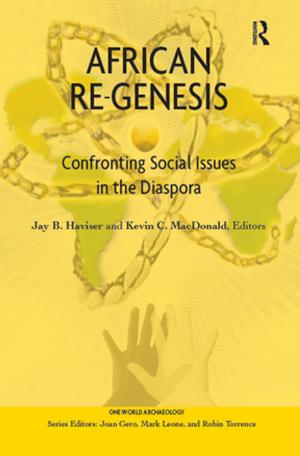Legitimacy and the Politics of the Knowable (RLE Social Theory)
Nonfiction, Social & Cultural Studies, Social Science, Sociology| Author: | ISBN: | 9781317651598 | |
| Publisher: | Taylor and Francis | Publication: | August 13, 2014 |
| Imprint: | Routledge | Language: | English |
| Author: | |
| ISBN: | 9781317651598 |
| Publisher: | Taylor and Francis |
| Publication: | August 13, 2014 |
| Imprint: | Routledge |
| Language: | English |
Roger Holme's work in social and industrial psychology is widely respected. The theme of this first collection of his essays is the relationship of the individual with the formal, value-laden group on the one hand and the scientifically known and the philosophically asserted on the other. Roger Holmes looks at the connexions between these two important relationships and considers them in terms of the interaction between the nature of society and the nature of the knowable.
The areas covered include the derivation of social classes, the nature of morale and the emergence of the professions and the trade unions. Subjects relating to the theory of knowledge include the nature of cross-cultural data, the relationship between empiricism and psychoanalysis, and Marxism and the nature of groups.
The author's main theoretical influences throughout have been psychoanalysis, which is treated sympathetically but critically, and Piaget; these influences are reflected in the main preoccupations of these essays.
Roger Holme's work in social and industrial psychology is widely respected. The theme of this first collection of his essays is the relationship of the individual with the formal, value-laden group on the one hand and the scientifically known and the philosophically asserted on the other. Roger Holmes looks at the connexions between these two important relationships and considers them in terms of the interaction between the nature of society and the nature of the knowable.
The areas covered include the derivation of social classes, the nature of morale and the emergence of the professions and the trade unions. Subjects relating to the theory of knowledge include the nature of cross-cultural data, the relationship between empiricism and psychoanalysis, and Marxism and the nature of groups.
The author's main theoretical influences throughout have been psychoanalysis, which is treated sympathetically but critically, and Piaget; these influences are reflected in the main preoccupations of these essays.















